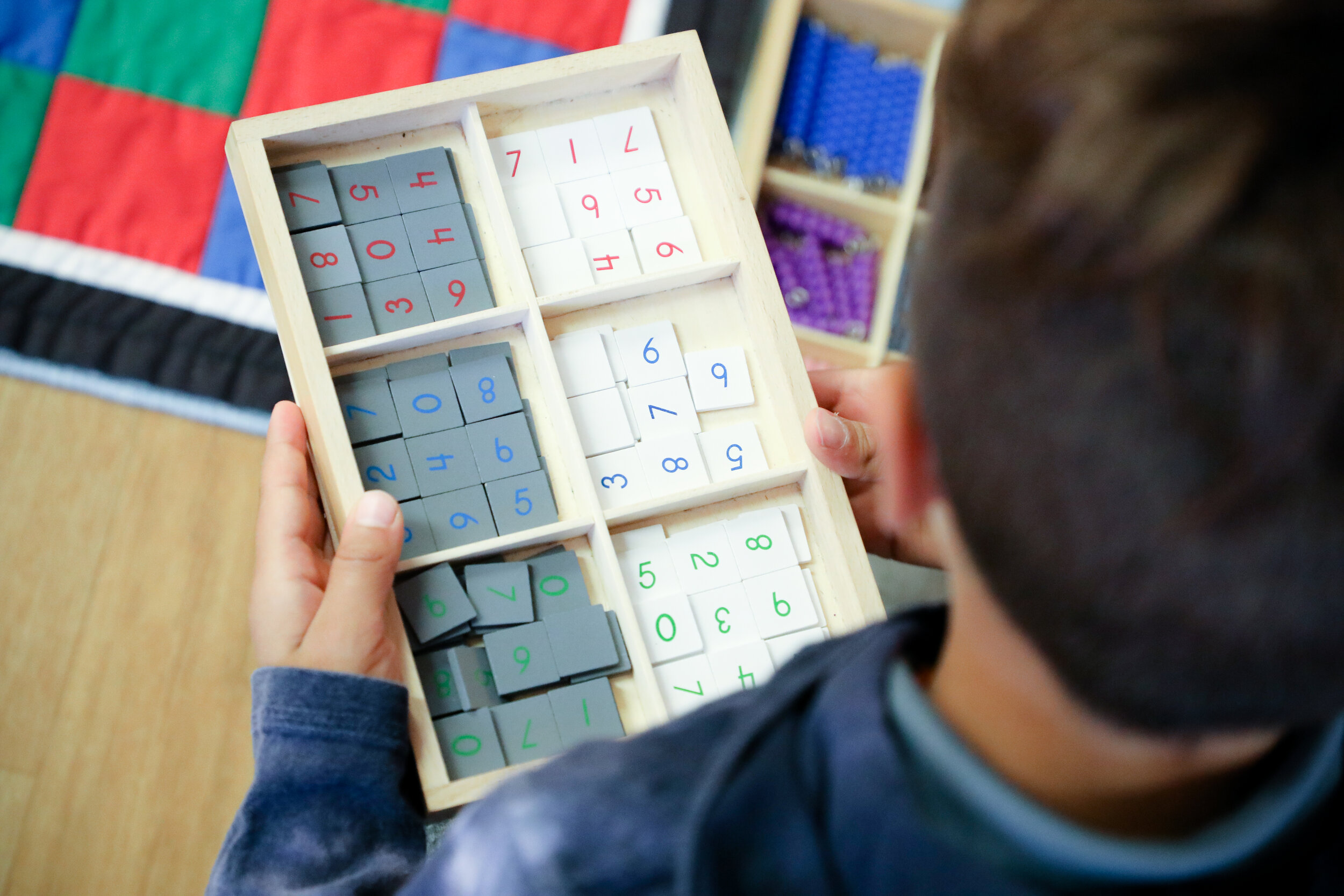
FAQs
Why does Montessori have multi-age classrooms?
Multi-age classrooms open up more possibilities for learning. Each child can work at his or her own pace, while remaining in the community with his or her peers. The multi-age format allows the older children to become leaders of the classroom, even those children who may be shy or quiet. The multi-age classroom allows teachers to work with their students for more than one year, getting to know their needs and when and how to challenge them at developmentally appropriate times.
Montessori classrooms don’t look like regular public school classrooms. Where are the rows of desks and where does the teacher stand?
The Montessori classroom creates a comfortable and open environment. Rather than putting the teacher at the focal point with the children dependent upon her for information and activities, the classroom reflects a child-centered approach. Children work at tables or on floor mats where they can spread out their materials, and the teacher circulates about the classroom, giving lessons, encouraging students, or resolving issues as they arise. This approach gives each child more attention and support to learn.
Is Montessori good for children with different learning abilities?
Montessori is designed to help each child reach their fullest potential at their own pace, including gifted children. A classroom whose children have varying abilities is a community in which everyone learns from one another and everyone contributes. The multi-age group classes also allow each child to find his or her own pace without feeling “ahead” or “behind” in relation to peers. Children are encouraged to engage in personally challenging work and activities supported by trained teachers who nurture skill development.
If children are free to choose their own work, how do you ensure they receive a well rounded education?
Montessori children are free to choose within prescribed subject matter and age appropriate curriculum. Children have as much freedom as they can handle with appropriate responsibility. Children are required to adhere to State curriculum standards supported by the Montessori methods, materials and teachers who see to it that each child is progressing at her appropriate pace in all subjects.
Are Montessori schools as academically rigorous as traditional schools?
Yes. Montessori classrooms encourage deep learning of the concepts behind academic skills rather than the skill and drill method of traditional schools. The Montessori alumni compete successfully with traditionally educated students in a variety of high schools. All students are required to take standardized testing and often perform above grade level.
Isn't Montessori just for pre-school?
Montessori schools may be best known for their programs for young children, but the underlying education method supports programs for students up through high school. MSD has approved Montessori curriculum for children toddler age (18 months) through eighth grade.
Are Montessori children successful later in life?
Research studies show that Montessori children are well prepared for later life academically, socially and emotionally. In addition to scoring well on standardized tests, Montessori children are ranked above average on such criteria as following directions, turning in work on time, listening attentively, using multiple learning skills, showing responsibility, being proactive learners, showing enthusiasm for learning and adapting to new situations.
Are Montessori schools religious?
No. Montessori educates children without reference to religious denomination. As a result, our classrooms are extremely diverse, with representation from all races, religions and cultures.
Who Accredits Montessori schools?
Montessori schools are accredited by the Association Montessori International (AMI) or the American Montessori Society (AMS) as well as the State Board of Education. Both AMI and AMS offer teacher training, workshops and conferences, approves the production of Montessori educational materials and through the associations, accredits schools. MSD is a full member of AMS.
What about the education and training of the teachers?
All of our lead teachers are college educated and AMI or AMS certified for the grade level they serve. This training ensures the teacher is knowledgeable about the developmental psychology of children and how to motivate and inspire the child’s attention for independent use of the Montessori materials and classroom environment. Montessori certified teachers have a minimum of a bachelor’s degree in education and the Montessori teacher training is equivalent of an additional year of graduate study.

